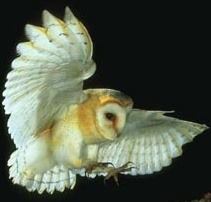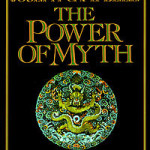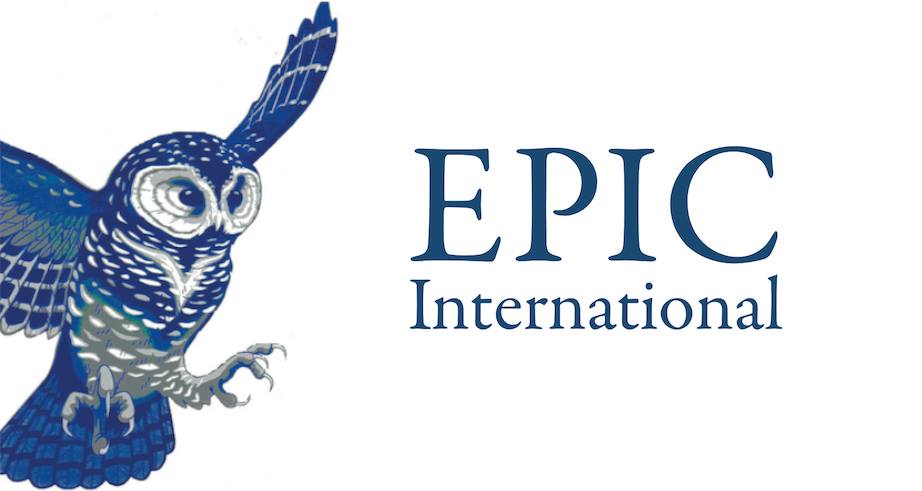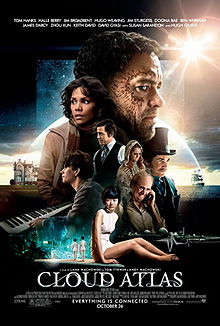 “The owl of Minerva flies only at dusk” – Hegel. One of the main reasons for building the Tingrith meeting house was to bring people together convivially in the spirit of building community. Where people celebrate their differences through dialogue, they learn to defend their own beliefs with good reasons, and make their own judgements about novel ideas or ways of living. In other words they learn to think well, to be philosophers in their daily life.
“The owl of Minerva flies only at dusk” – Hegel. One of the main reasons for building the Tingrith meeting house was to bring people together convivially in the spirit of building community. Where people celebrate their differences through dialogue, they learn to defend their own beliefs with good reasons, and make their own judgements about novel ideas or ways of living. In other words they learn to think well, to be philosophers in their daily life.
Tingrith thinkfests 2017
The Tingrith thinkfests continue at the meetinghouse, 24 Hobson Road, Osmington on the third Sunday of each month 2-5 pm. $10 donation per session covers afternoon tea.
Albert Einstein said “As far as the laws of mathematics refer to reality, they are not certain and as far as they are certain, they do not refer to reality.” This series of informal seminars explores the question of whether we invented or discovered mathematics and the relation of numerical patterns to the natural world. Topics will include the power of symmetry, the harmony of the spheres, Pythagorean theorems in stone, the Golden Ratio in art and architecture, the Fibonacci series in nature and how magic is a tetractys? No mathematical or philosophical knowledge is necessary. We will all learn from each other.
15th Jan Pythagoras
19th Feb Tetractys and symmetry
20 March The Harmony of the Spheres: music and frequencies Om singing bowls
16 April The Golden Ratio
21 May The Fibonacci series and
18th June Numerology and the Power of Limits
Contact Felicity 97574014 tingrith63@gmail.com
TINGRITH THINKFESTS 2016
February 21st – June 19th The geography of place – . Any time a location is identified or given a name, it is separated from the undefined space that surrounds it. Do we share the same sense of place in Margaret River? What is the ethos of Margaret River that we share? Community as a sense of belonging. Can one plan a community? What would be the rules for sharing a place? Placelessness and displacement. Places that lack a “sense of place” are sometimes referred to as “placeless” or “inauthentic.” As Gertrude stein says “there is no there there” Can you name some places like this?. Our place in nature. Humans have a history of placing themselves in control of nature instead of entering into a complex interrelationship with it. Deep ecology promotes our living in nature as a natural ecosystem in which all living things are equally interconnected. Our place in the Cosmos Can we be everywhere and nowhere at the same time, in a sort of postquantum physics of energy and Flow.
In the second half of 2016 we discussed lying, which involved the relationship between words and the world, between language and knowing, between intention and self-consciousness. Dorothy Rowe’s definition “Lies are words or actions that are intended to deceive others or ourselves” “A half truth is a whole lie” (Jewish proverb). Self-delusion Rowe claims that every lie we tell, even about being fine when asked how we are, is a defence of our sense of being a person (p.50) Can animals lie? Is a concept of their identity or self-consciousness or intentionality necessary for lying to take place? The value of stereotypes and generalizations. The truth of Metaphors
TINGRITH THINKFESTS 2015/2
 JOSEPH CAMPBELL The Power of Myth.
JOSEPH CAMPBELL The Power of Myth.
These workshops will be based on Joseph Campbell and The Power of Myth a seven-part series of one-hour interviews with Bill Moyes, printed as an ongoing conversation with Bill Moyes as The Power of Myth. It will benefit you to have at least watched some of these before the relevant meeting if you can find the DVD or read the relevant portion of the book…
August 16 The Hero’s Journey The progress of myth –Paleolithic, Neolithic, Bronze Age, 6th C on. Monomyth: all mythic narratives are variations of a single great story The Hero’s Journey is the story of the man or woman who, through great suffering, reaches an experience of the eternal source and returns with gifts powerful enough to set their society free. Cf. Pilgrim’s Progress and Joyce’s Ulysses. Simply a moral tale? “If you follow your bliss, you put yourself on a kind of track that has been there all the while, waiting for you, and the life that you ought to be living is the one you are living. Wherever you are—if you are following your bliss, you are enjoying that refreshment, that life within you, all the time” Sat-Chit-Ananda. The word “Sat” means being. “Chit” means consciousness. “Ananda” means bliss or rapture. I thought, “I don’t know whether my consciousness is proper consciousness or not; I don’t know whether what I know of my being is my proper being or not; but I do know where my rapture is. So let me hang on to rapture, and that will bring me both my consciousness and my being.” PM 1 About Campbell , hero types, hero deeds, Jesus Christ, the Buddha, Movie heroes. Star Wars as a metaphor, the refusal of suitors, dragons, dreams and Jungian psychology, consciousness in plants, Gaia, Chartres Cathedral, Spirituality vs economics emerging myths, Earthrise as a symbol
September 20 Being part of the Earth. In the agricultural age, the plant and cultivation cycle was mirrored in religious rituals which often included human sacrifice, symbolic or literal. The main figures of this system were a female Great Goddess, Mother Earth, and her ever-dying and ever-resurrected son/consort, a male God. PM 4. Sacrifice & Bliss Chief Seattle, the sacred earth, agricultural renewal. Human sacrifice, sacrifice of the Mass. Transcendence of death, The Green Knight, societal dictates vs following bliss, hidden hands guiding life’s work. (Helene Fisher will hold a workshop on Deep Ecology at Tingrith on the same day).
October 18th The Way of Man The growth of religion and philosophy The differences between fairy stories and myth. God as metaphor. “If you follow your bliss, you put yourself on a kind of track that has been there all the while, waiting for you, and the life that you ought to be living is the one you are living. Wherever you are—if you are following your bliss, you are enjoying that refreshment, that life within you, all the time” PM 6 Masks of Eternity Identifying with the infinite, the circle as symbol, clowns and masks, epiphanies and James Joyce, artistic arrest, the monstrous as sublime, the dance of Shiva, that which is beyond words.
November 16th Love and the Goddess Campbell recognized that the poetic form of courtly love, carried through medieval Europe by the traveling troubadours, contained a complete mythology in its own right. Campbell describes the emergence of a new kind of erotic experience as a “person to person” affair (Tristan and Isolde), in contrast with the purely physical definition given to Eros in the ancient world and the communal agape found in the Christian religion PM 5 The Troubadours, romantic love, Eros, Tristan. Libido vs credo, separation from love, Satan, loving your enemy, the Crucifixion as artonement.. virgin birth, the story of Isis, Osiris and Horus, the Madonna, the Big Bang, the connection between the earth or Mother Goddess and images of fertility (the sacred feminine)
December 20th Archetypes and Masks According to Campbell, the absolute mystery of life, what he called transcendent reality, cannot be captured directly in words or images. Symbols and mythic metaphors on the other hand point outside themselves and into that reality. In ancient societies, myth functioned as a proto-science, offering explanations for the physical phenomena that surrounded and affected their lives. Ancient societies had to conform to an existing social order if they were to survive at all. This is because they evolved under “pressure” from necessities much more intense than the ones encountered in our modern world. Mythology confirmed that order and enforced it by reflecting it into the stories themselves, often describing how the order arrived from divine intervention. Myth may serve as a guide for successful passage through the stages of one’s life. PM 2.The Message of the Myth Creation myths, transcending duality, pairs of opposites, God vs nature, sin, morality, participation in sorrow, the Gospel of Thomas, Old time religion, computers, religion as “software, the story of Indra. “What a great boy am I!” participation in society
For the first six months of 2015 thinkfests were based on the question can women be philosophers, using the following programme
January 18th Hypatia (370-415). The risk of superiority.
February 15th Virginia Woolf. Do women need a room of their own?
March 15th Simone de Beauvoir. One is not born, but rather becomes, a woman.
April 19th Dame Mary Warnock. The truths of the imagination.
May 17th Iris Murdoch. The journey to the Sovereign Good.
June 21st Germaine Greer. Not to be trifled with.
July 19th bell hooks. Passionate politics.
The two thinkfest sessions for 2014 focussed firstly on Cloud Atlas,the novel by David Mitchell, a fantastic web of stories on our capacity to choose vicious or virtuous acts, and the consequences for future generations. The second half was on Mindfulness, covering fast and slow thinking, lucid dreaming, consciousness, whether worms or trees could think. The sessions were so provocative and lively that Felicity is running a shorter version of them in town for the MR University of the Third Age, starting on May 21st. There are still many questions to answer.
DISCOVERY AND INVENTION
Did Cook discover or invent Australia? Did Edison discover or invent the electric light globe? Did we discover or invent electricity? Did we discover or invent magnets? Did we discover or invent magnetisim? Years ago, following Matthew Lipman, I was asking these questions of some Grade 5 Guildford GS students. I was struck by a good question from an excited ten-year-old: “Did we discover or invent maths?” It seemed a good question. Now I find it discussed by Dekofsky on https://www.youtube.com/watch?v=X_xR5Kes4Rs&feature=em-uploademail. But, entertained, I still don’t know the answer!
 There are plenty of philosophical discussions available online. One frequent visitor to Tingrith is Christopher J. Irving, a self-taught philosopher who offers his thoughts and reflections on various issues, the latest of which is an essay on the relationship between creationism and evolution. Christopher has his own website The Sage on the Page and welcomes your comments.
There are plenty of philosophical discussions available online. One frequent visitor to Tingrith is Christopher J. Irving, a self-taught philosopher who offers his thoughts and reflections on various issues, the latest of which is an essay on the relationship between creationism and evolution. Christopher has his own website The Sage on the Page and welcomes your comments.
Professional development for philosophy teachers
Years of working teaching philosophy in schools, based on the Lipman programme, has made Felicity Haynes an inspiring and dedicated leader of communities of inquiries. In 2010 she with Alison Freeman, now Deputy Principal at Geographe Primary School, which is about to become a philosophy-based whole school, ran a two-day workshop in the meetinghouse for 21 teachers who wanted to teach philosophy for children in the meetinghouse. In January 2011 all of the teachers and a former principal of a Perth Montessori school came down for a residential course following the previous course, and have decided to make philosophy the core of their programme. The normal cost of the course is $310 each covering a manual, morning teas and coffees and lunch on each day, and a very stimulating programme which will be fun! Teaching children to think critically and independently is an important part of the National Curriculum. The consequence of teaching children to be reasonable is that bullying stops in schools where it is practised, and the place becomes more ethical and friendly. Accreditation to Level 1 certificate is run under the supervision of the Association for Philosophy in Schools (APISWA) and is recognised in every state in Australia under FAPSA.APIS also publishes a new magazine Critical and Creative Thinking Philosophy is being taught in schools around the world at all levels, tradtioanlly and in the Lipman mode. The Philosophers’ Magazine has articles and philosophical games to play. Sapere is the British organisation.
 Founded in 1990, ‘EPIC’ (The European Philosophical Inquiry Centre) is an independent not for profit centre dedicated to implementing Practical Philosophy in businesses, community groups, pubs, schools, art galleries etc. to enable groups of people of any age to engage in Philosophical Dialogue in any setting. A two-day workshop will be held in Riga, Latvia in June 6th, 7th this year. Only 180 Euro for the 2-day course, 100 for one day! To apply please email The.Philosophy.Doctor@gmail.com with the subject title: ’Philosophy for Communities Application.’ Watch EPIC’s director, Dr Catherine McCall talk about Philosophy in Schools
Founded in 1990, ‘EPIC’ (The European Philosophical Inquiry Centre) is an independent not for profit centre dedicated to implementing Practical Philosophy in businesses, community groups, pubs, schools, art galleries etc. to enable groups of people of any age to engage in Philosophical Dialogue in any setting. A two-day workshop will be held in Riga, Latvia in June 6th, 7th this year. Only 180 Euro for the 2-day course, 100 for one day! To apply please email The.Philosophy.Doctor@gmail.com with the subject title: ’Philosophy for Communities Application.’ Watch EPIC’s director, Dr Catherine McCall talk about Philosophy in Schools
Past thinkfest series at Tingrith
2014/2 Mindfulness
The topic for the thinkfests of the second half of 2014 was Mindfulness rather than consciousness, to discuss the latest theories of brain and the material aspects, say, of lucid dreams, visions and the effect of space travel on the mind, but also keep to our old topics of becoming aware, and the power of self-description, and where dreams come from…….The series was so thought-provoking that Felicity will repeat it for the Margaret River University of the Third Age on Thursdays 1-3pmdown on the SWIT Campus
Mindfulness is “the intentional, accepting and non-judgmental focus of one’s attention on the emotions, thoughts and sensations occurring in the present moment.” We all have this really intimate experience of living, and seeing things, and thinking, and believing we exist, which needs some sort of explanation, and as scientists we believe that this experience comes from some brain process; the problem is making the link between the brain process and the experience. Kevin O’Regan thinks this is a pseudo-problem. Let’s explore…..
August 17th Telepathy. Everyone has consciousness, but they have no access whatsoever to anyone else’. Is it? I think there must be someone it’s like to be you, sitting there, and I believe that there’s something it’s like to be me, but some philosophers would say that that’s incoherent, that there isn’t anything that it’s like to be me or you.. On the other hand, each of us is the only thing we will ever know what it’s like to be. Any requirement of further evidence is irrelevant…Is even self-knowledge a delusion?
August 31st Intuition and Reason Fast and Slow thinking, Kahnemann says the brain forms thoughts in two ways. System 1: Fast, automatic, frequent, emotional, stereotypic, subconscious System 2: Slow, effortful, infrequent, logical, calculating, conscious. System 1 thinking involves associating new information with existing patterns, or thoughts, rather than creating new patterns for each new experience. Hemispheric specialization. Kahneman.http://www.youtube.com/watch?v=qzJxAmJmj8w Conscious after death moves to another universe: http://theviralpost.com/quantum-theory-proves-consciousness-moves-to-another-universe-at-death/ Biocentrism – our mind constructs time and space…..
October 19th Lucid dreaming Lucid dreams are dreams in which you know, at the time, that it’s a dream. Stephen leBerge “In most dreams we are conscious on an experiential level. Why should realizing that something like a dream isn’t real make it more real? I think this enhancement of vividness is due to our intense focus on the present. Here I am! Right now if you were to realize the miracle of consciousness and to be here, now, you’d have an similar experience.” Is lucid dreaming a metaphor for enlightenment or contact with cosmic consciousness? Is it the Buddhist version of mindfulness?
November 2nd Making a conscious choice.. Freedom and determinism. Dennett’s materialistic account of how our minds evolved seems to threaten the traditional concept of free will. But Dennett claims to support a stronger, wiser concept of freedom than the myths of autonomous self that it must replace.
November 16th How conscious is a worm? Or kikuyu? And how would we know? John Searle says “Consciousness is our life, the sequence of our life, the things that matter to us after our birth and before our death. We’re happy if we make money because then experiences are possible that we wouldn’t have otherwise. There are other things like digestion and photosynthesis, but consciousness is an amazing product of certain kinds of animal and human brains.”
Readings
Conversations on Consciousness Susan Blackmore 2008
The Conscious Mind: In Search of a Fundamental Theory David J. Chalmers 1996
Freedom Evolves Daniel C. Dennett 2003
The Future of the Mind Michio Kaku 2014
Thinking Fast and Slow. Daniel Kahnemann 2011

Cloud Atlas is a 2012 drama and science fiction film adapted from the 2004 novel by David Mitchell. The official synopsis for Cloud Atlas describes the film as: “An exploration of how the actions of individual lives impact one another in the past, present and future, as one soul is shaped from a killer into a hero, and an act of kindness ripples across centuries to inspire a revolution”.
16 February The concept of time. Fractals and the structure of the book and the film. For a pictorial timeline see the following
16 March Truth “Most yarnin’s got a bit o’true, some yarnin’s got some true, an’ a few yarnin’s got a lot o’ true. The stuff about Meronym the President was mostly true, I reck’n” Zachry’s son p.324 “This isn’t an interrogation, remember, or a trial. Your version of the truth is what matters. No other version of the truth has ever mattered to me. ” p.187 Somni.
20 April . History “Scholars discern motions in history and formulate these motions into rules that govern the rises and falls of civilizations. My belief runs contrary, however. To wit: History admits no rules; only outcomes. What precipitates outcomes? Vicious acts a & virtuous acts. What precipitates acts? Beliefs. Belief is both prize and battlefield, within the mind & in the mind’s mirror, the world.” Adam Ewing, p.528 Everything is connected to everything else.But how? Closed loop causation.
18 May The idea of karma Are we free to choose good? What is Karma
15 June Identity “Our lives are not our own. From womb to Tomb we are bound to others Past and present” Five novels or one? Five heroes or one? Is love everlasting? What is the whole that is more than the sum of its parts?
(for the detailed programmes, click on the titles or go to the menu).
Imagination July – November 2013 — Do autistic people lack imagination? How can we visualise the unseen?what are the boundaries,if any, of imagination?
Ethics January – June 2013 What is punishment for? the relationship between rights and responsibility, the ethic of care, is it always fair to treat equals equally? can we create community?
There’s more to Seeing than meets the Eyeball July – December 2012 Evidence (Is seeing always believing)? The five senses and the sense of being stared at. What is colour (Newton vs Goethe) and where does the green in grass go at night? .
What (and Why) is Art? February – June 2012 What makes an artwork art? Has it anything to do with Beauty? With Meaning? with Politics? Berger’s Ways of Seeing; The integrity of art.
Chaos Theory June – December 2011 Introduction http://youtu.be/cPjv5gIUeU8 The Secret Life of Chaos-(BBC 2010) How does this mathematical theory relate to humans? Really about open systems theory, but it included fractals and the mystery of Phi, the golden mean, creativity and chaos, love and chaos, the mystery of time. Is chaotic evolution progressive, degenerative or just random?
Return to Wonderland January – June 2-11 What is it like to be a cat without a grin? Who in the world am I? Can intentions have an effect on material objects (discussing Emoto’s water crystals)
Doing Philosophy can be fun!
Here is a recent article on doing philosophy with children in the UK. Thinking in Schools from The Philosophers’ Magazine . You could ask whether this is really doing philosophy, or whether it is just engaging the children’s interests creatively, but it does seem to work at helping children become more tolerant and able to present their ideas more reasonably.
The pleasure in having intelligent conversations with strangers can to a lesser extent be achieved by reading some of the popular philosophy books listed below, or by being challenged on the internet. But the best way of learning how to think better is to join in a genuine dialogue with other people, even strangers, and learn how to listen, reflect and contribute to the making of meaning